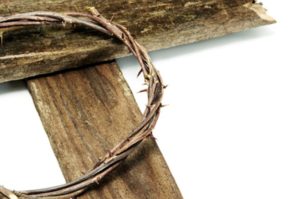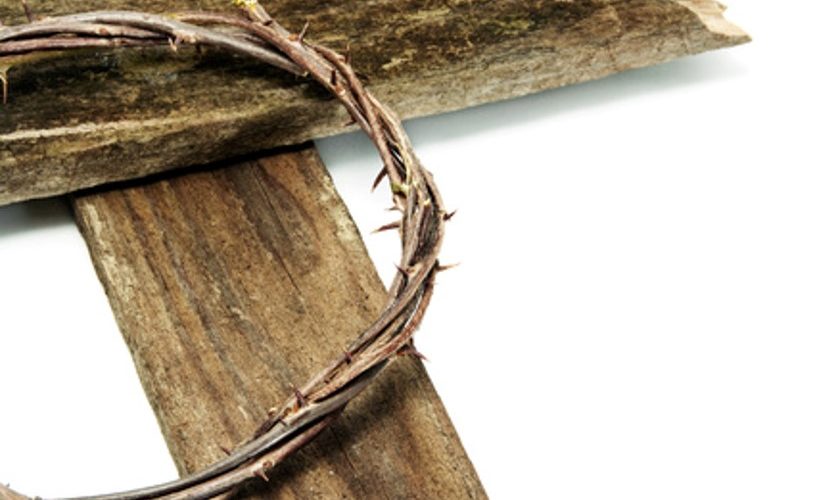The Cry of the Cross
Podcast: Play in new window | Download
Subscribe: RSS
 TITLE: The Cry of the Cross (Psalm 22)
TITLE: The Cry of the Cross (Psalm 22)
SUBJECT: Passage Study
PROPOSITION: In this lesson, we will study through Psalm 22 noticing how the cry of the cross is echoed in this Psalm. The Cry of the Cross is a 1) Cry of Ultimate Trust, 2) Cry of Death, 3) Cry of Praise, and 4) Cry of Victory.
OBJECTIVE: To understand the significance Psalm 22 has in relationship to the cross of Jesus.
AIM: To impress upon each listener the attitudes that Jesus faced when He went to the cross.
INTRODUCTION:
1. Read: Psalm 22:1 – “My God, My God, why have You forsaken Me? Why are You so far from helping Me, And from the words of My groaning?”
2. About the Text:
1) Jesus quoted this Psalm when He was hanging on the cross.
2) “And at the ninth hour Jesus cried out with a loud voice, saying, “Eloi, Eloi, lama sabachthani?” which is translated, “My God, My God, why have You forsaken Me?”” (Mark 15:34).
3) Some scholars believe that Jesus quoted the entire Psalm while on the cross.
4) This Psalm has several messianic prophecies in it.
3. Ref. to S, T, P, O, and A.
DISCUSSION: The cry of the cross is a cry of . . .
I. Ultimate Trust (1-11)
1. He questions God (1-2).
1) The cross is suffering, and when people suffer, they question God.
2) Job did this – ““Why is light given to him who is in misery, And life to the bitter of soul” (Job 3:20).
2. He affirms His trust in God (3-5).
1) He trusts because God provided for his people in the past.
2) “Though He slay me, yet will I trust Him” (Job 13:15).
3. His people ridicule him for trusting God (6-8).
1) The unrighteous mock the righteous for trusting in God.
2) “Likewise the chief priests also, mocking with the scribes and elders, said, “He saved others; Himself He cannot save. If He is the King of Israel, let Him now come down from the cross, and we will believe Him. He trusted in God; let Him deliver Him now if He will have Him; for He said, ‘I am the Son of God’”” (Matthew 27:41-43).
4. He recognizes that there is no one to trust but God (9-11).
1) Only God can help and no other.
2) “But Simon Peter answered Him, “Lord, to whom shall we go? You have the words of eternal life” (John 6:68).
II. Cry of Death (12-21)
1. It comes at the hands of others who gape at him (12-13).
1) The bulls and lions symbolize the power of his persecutors to kill him.
2) “Pilate answered and said to them again, “What then do you want me to do with Him whom you call the King of the Jews?” So they cried out again, “Crucify Him!” Then Pilate said to them, “Why, what evil has He done?” But they cried out all the more, “Crucify Him!”” (Mark 15:12-14).
2. It drains him of all bodily resources (14-15).
1) Being poured out like water was a reference to death as a drink offering (2 Tim.4:6).
2) Jesus heart was literally broken on the cross – “But one of the soldiers pierced His side with a spear, and immediately blood and water came out” (John 19:24).
3) Jesus’ thirst was great: “After this, Jesus, knowing that all things were now accomplished, that the Scripture might be fulfilled, said, “I thirst!”” (John 19:18).
3. The wicked torment him and take away his last possessions.
1) “And when they had come to the place called Calvary, there they crucified Him, and the criminals, one on the right hand and the other on the left” (Luke 23:33).
2) “For these things were done that the Scripture should be fulfilled, “Not one of His bones shall be broken.”” (John 19:36).
3) “Sitting down, they kept watch over Him there” (Matthew 27:35).
4) “They said therefore among themselves, “Let us not tear it, but cast lots for it, whose it shall be,” that the Scripture might be fulfilled which says: “They divided My garments among them, And for My clothing they cast lots.” Therefore the soldiers did these things” (John 19:24).
4. Only God can deliver him out of such malice – “He is not here, but is risen!” (Luke 24:6).
III. Praise
1. He praises God for future fellowship (22-23).
1) “For both He who sanctifies and those who are being sanctified are all of one, for which reason He is not ashamed to call them brethren, 12 saying: “I will declare Your name to My brethren; In the midst of the assembly I will sing praise to You.”” (Hebrews 2:11-12).
2) “Therefore by Him let us continually offer the sacrifice of praise to God, that is, the fruit of our lips, giving thanks to His name” (Hebrews 13:15).
2. He praises God for hearing his prayer and delivering him (24).
1) God hears the cry of the afflicted.
2) “who, in the days of His flesh, when He had offered up prayers and supplications, with vehement cries and tears to Him who was able to save Him from death, and was heard because of His godly fear” (Hebrews 5:7).
3. He praises God for the good works that will be done (25-26).
1) Vows will be paid; the poor will eat; those who seek will praise the Lord.
2) “But do not forget to do good and to share, for with such sacrifices God is well pleased” (Hebrews 13:16).
IV. Victory
1. For God’s Kingdom (27-28).
1) All kingdoms now belong to Jesus Christ.
2) “Then the seventh angel sounded: And there were loud voices in heaven, saying, “The kingdoms of this world have become the kingdoms of our Lord and of His Christ, and He shall reign forever and ever!”” (Revelation 11:15).
2. For God’s Worship (29).
1) Everyone will bow the knee to Christ – “that at the name of Jesus every knee should bow, of those in heaven, and of those on earth, and of those under the earth, and that every tongue should confess that Jesus Christ is Lord, to the glory of God the Father” (Philippians 2:10-11).
2) “Who shall not fear You, O Lord, and glorify Your name? For You alone are holy. For all nations shall come and worship before You, For Your judgments have been manifested” (Revelation 15:4).
3. For the Future of God’s People (30-31).
1) “And we declare to you glad tidings—that promise which was made to the fathers. God has fulfilled this for us their children, in that He has raised up Jesus” (Acts 13:32-33).
2) “He who overcomes shall inherit all things, and I will be his God and he shall be My son” (Revelation 21:7).
4. “He said, “It is finished!” And bowing His head, He gave up His spirit” (John 19:30).
CONCLUSION:
1. The Cry of the Cross is a cry of . . .
1) Trust
2) Death
3) Praise
4) Victory
2. Invitation

